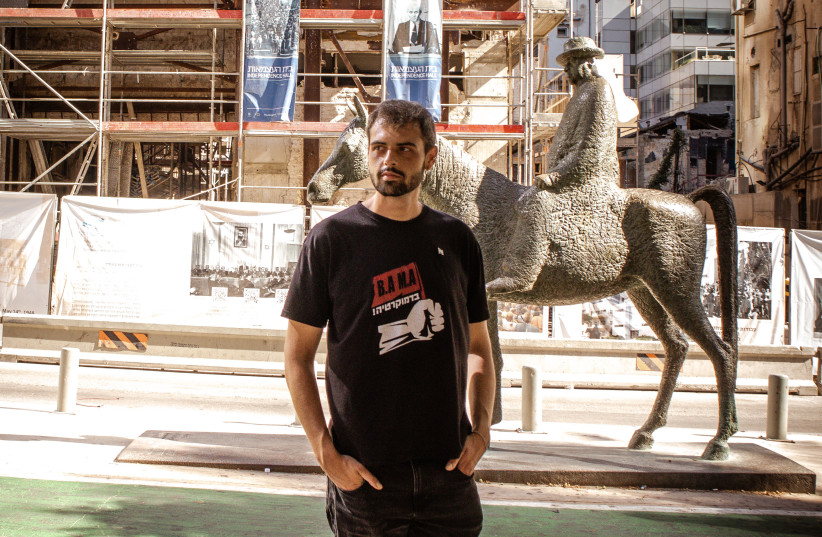Bar Pakula, one of the leaders of the student protests, appeared vigilant and prepared to continue his fight for democracy, following his arrest late Thursday night outside of Hashalom Train Station in Tel Aviv, marking the third time in three weeks he’s been arrested for “disruption to order.”
“The situation is so fragile and critical right now,” Pakula, 27, said on Friday. “[The protests are] an epic show of civic power” to combat the coalition’s intent to finalize legislation that would revoke the ability of the High Court of Justice to justify decisions based on the reasonableness clause. The Knesset is attempting to finalize legislation before they go on break on July 31.
Pakula added that “the basic DNA of this country is on the line… its democratic [ideals], separation of government entities, and a certain place for [the Jewish] religion.”
Pakula was one of several arrested Thursday night outside of Hashalom and was later released.
He explained: "One of the senior officers came running to me [and said], ‘you made them go down [to block the Ayalon Highway],’ which is a big accusation for one person [to accomplish] in a crowd of thousands."

The student protesters gathered at Habima Square earlier in the evening before making their way to Hashalom Station, where hundreds gathered following Prime Minister Benjamin Netanyahu’s speech, which further inflamed public opposition.
What did Netanyahu say?
In the speech, Netanyahu faulted IDF reservists for threatening to cease volunteer duties and chastised the opposition for what he called its failure to come to the negotiation table on judicial reform talks.
Pakula said that “we’re not going in a good direction right now,” referring to the introduction of water cannons at the protests – a tactic that hadn’t been used against demonstrators until recent weeks.
“The government can’t go and do whatever they want – we’re seeing [National Security Minister Itamar] Ben-Gvir trying to pass a law for administrative detention [in response to any] ‘disruption to order’ – the general reason they arrest protesters,” in effect giving him the ability to arrest those deemed unsafe to the public sphere.
“The government can’t go and do whatever they want."
Bar Pakula
The legislation was presented in the context of acts of terrorism, not public protests.
Pakula was not a political activist prior to joining the protests in January, following the election of the new coalition. After the election, friends turned against him due to their political differences, a significant reckoning where he felt like his only options were to leave the country or stay and fight for his vision of the identity of the nation.
“These protests give them [the groups participating in civil disobedience] the backing and feeling that what they’re doing is important for the country, and that are hundreds of thousands of Israelis that are standing behind them giving them the energy to do what they believe in.
“The way we come out from these protests is going to dictate how this country looks and whether or not you can live freely and be who you are, whether you’re Jewish or not, whether you’re a woman or a man or transgender or whatever your sexual orientation – all of that is on the line.”
Pakula recognizes that the police must continue to do their job while maintaining that “every time there is a call to protest, there is a big emphasis on non-violence. We have no reason to be violent, and that’s not what we believe in. The police may be acting more harshly, but there is a very strong limit to what [police] can do with public legitimacy. In the end, they’re doing their job and are under a lot of pressure.”
Police did not respond to a request for comment.
